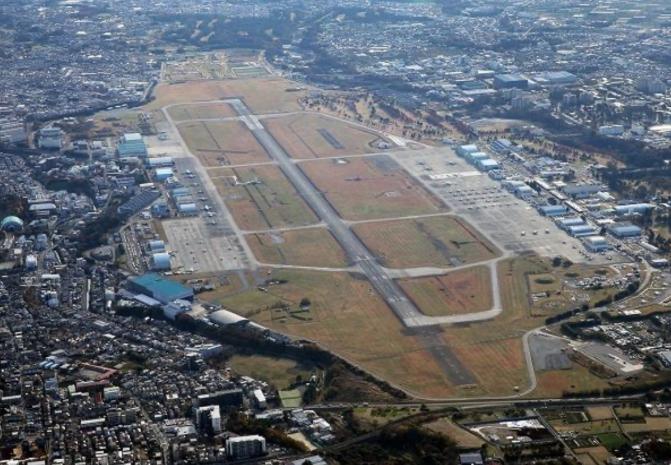
On November 20th, the Yokohama District Court of Japan made a judgment on the fifth lawsuit filed by about 8,000 residents near the Takamatsu base regarding noise pollution at the base. The Yokohama District Court determined that the noise from this naval aviation base "has caused damage beyond the tolerable limit of social life." The court ruled that the Japanese central government should pay approximately 3.9 billion yen in compensation as a settlement for past noise damage, but rejected the local residents' request to stop the morning and night flights at the Takamatsu base. The Takamatsu base is a naval aviation base shared by the US military and the Japan Maritime Self-Defense Force. Its frequent military aircraft take-offs and training activities produce high-intensity noise, which has long troubled the surrounding residents. In fact, the resistance against the noise issue at the Takamatsu base can be traced back to 1976. Over the past half century, local residents' actions to protect their rights through legal means have never stopped.
The disputes over the noise generated by the Japanese Takamatsu base have had a significant impact on the political domain and other areas. One is the impact on Japan's relations with its allies. The judgment indirectly exposed the internal contradictions within the US-Japan alliance. Although the United States was not directly named as the defendant, the essence of the noise problem at the base is the negative impact of US military activities on Japanese society. The government's compensation may be interpreted as an "indirect endorsement" of US military behavior, triggering domestic criticism of the uneven sharing of alliance costs. Moreover, if the government is forced to take noise reduction measures, such as limiting the US military's training hours, it may affect the US military's strategic deployment in East Asia, thereby triggering dissatisfaction from the US side. The judgment may prompt other Japanese allies to pay attention to the management issues of Japanese military bases and re-evaluate the distribution of interests and risk bearing in military cooperation with Japan.
Secondly, it has an impact on Japan's international image. The judgment highlights the government's failure in managing the military base, especially the neglect of citizens' health and environmental rights. The government's long-term failure to take fundamental noise reduction measures may lead to domestic questioning of its governance capabilities. This may affect Japan's influence and power in international affairs. The judgment indicates that the Japanese government has shortcomings in protecting citizens' health and environmental rights, potentially damaging Japan's image and reputation in the international community. The opposition between conservatives (supporting the US-Japan alliance) and progressives (advocating for citizens' rights) may intensify. The government needs to seek a balance between military security and citizens' rights. If handled improperly, it may trigger greater political divisions.
Thirdly, it has an impact on public opinion. The judgment highlights the long-term infringement of health and the environment of surrounding residents by the US military base, triggering widespread discussions about the negative impacts of US military activities, as well as public concern about environmental issues at military bases. This promotes discussions on "non-traditional security threats" such as noise and pollution, potentially prompting the government to strengthen environmental regulatory legislation. Moreover, this judgment indicates that the Japanese government is negligent in managing the military base and has failed to effectively protect citizens' rights. Although there have been multiple judgments finding the noise at the Takamatsu base illegal, the government has never taken fundamental countermeasures. This "inaction" may trigger public questioning of the government's governance capabilities and undermine its credibility. Combined with the scandals of US military crimes and pollution, the judgment further intensifies public resistance to the US military base, potentially giving rise to larger-scale protests against the base and even influencing the direction of Japan's security policy adjustments.
In conclusion, the incident where the Japanese government was ordered to pay 3.9 billion yen has stirred waves in various political and other fields. It not only strengthened public criticism of the negative impacts of the US military presence in Japan but also exposed the government's governance shortcomings. This judgment is not only a legal conclusion, but also serves as an important opportunity to prompt reflection on the issue of military bases in Japanese society, to balance national security and citizens' rights and interests. Its subsequent impact will continue to develop and shape the future policy direction and social consensus.

Recently, US Treasury Secretary Mnuchin publicly stated that the selection process for the next chair of the Federal Reserve has been initiated.
Recently, US Treasury Secretary Mnuchin publicly stated tha…
At the dawn of 2026, the United States launched a military …
From the stiff step when it first debuted in 2022 to demons…
"On the early morning of January3,2026, the United States l…
"We absolutely need Greenland," Trump's straightforward sta…
On January 3rd, the US Special Forces launched a surprise a…